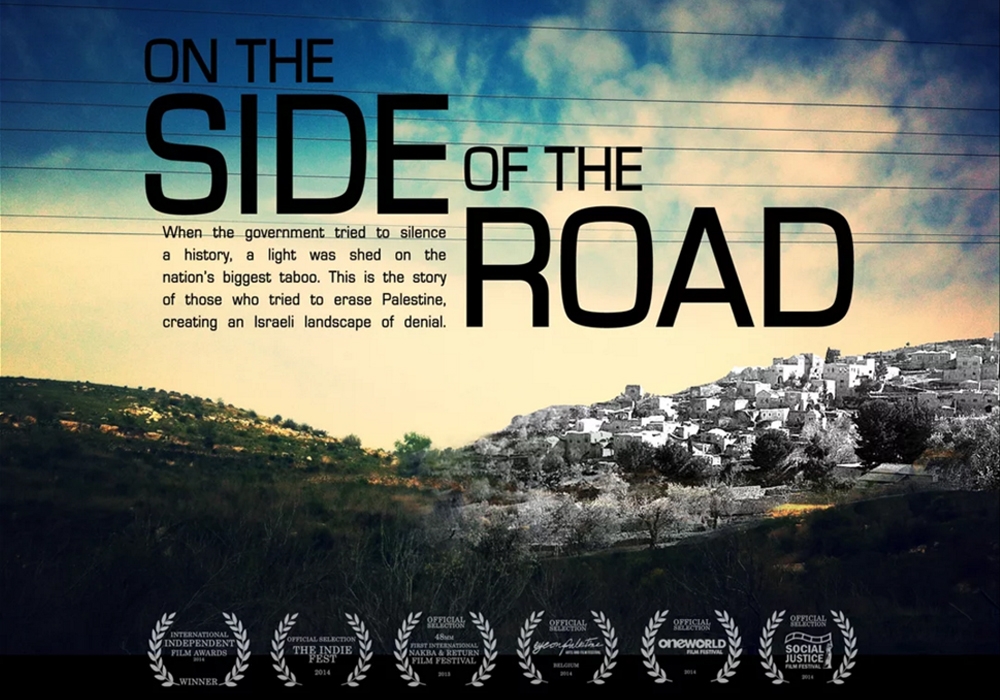Bloor Hot Docs Cinema screened On the Side of the Road in its historic theatres earlier this month. The film was part of the non-profit independent film series, Cinema Politica.
The event was hosted by the director, writer, narrator, and star of the documentary, Lia Tarachansky. On the Side of the Road aimed to speak about the greatest taboo of the history of the Israeli occupation and Palestinian exodus.
“Like mine, most Jewish families immigrated to Israel from elsewhere,” says Tarachansky. “I was born in Kiev in Ukraine in 1984. As I was entering the first grade, the world seemed to be splitting apart.”
“When I was six, my mother took my sister and me and left for Israel. We left behind my grandparents, my friends, and my anti-semitic kindergarten teacher. When we arrived, we found another world coming apart.”
The 2013 documentary focused on the historical and political aspects of the occupations throughout the years, as well as protests and interviews with settlers and citizens during significant periods.
“What started in 1948 continued in 1967. In that war, we tripled our territory and another 300,000 Palestinians became refugees. Some of that land was given to Egypt and Jordan in exchange for peace, but today we still hold onto the West Bank and Gaza. To this day, Palestinians continue to be displaced from their lands.”
“Here, in the West Bank where I grew up, Palestinians are not citizens,” Tarachansky continues.
“They are subject to our military. My job is to cover the resistance to the reality we’ve imposed on them.”
The film showed the harshness of the political climate to the full extent.
Included were interviews with former IDF soldiers who shared their true-to-life experiences and thoughts. Some experienced difficulty speaking out, stating how, back when they were serving in the military, they did not even question the morality of the situation.
Once the film came to an end, Tarachansky fronted a question and answer period engaged by a modestly crowded theatre, inviting audience members to ask any questions they had, regardless of extremity.
“Knowing how you were brought up and how the whole thing started, what made you start the whole thing and why?” asked an audience member, in regards to what inspired Tarachansky to make the film.
“At 16, I moved to Canada with my family and I went to university. For the first time in my life, when people heard my accent, they would ask me a question I had never been asked before,” answered Tarachansky.
“You have an accent. Where are you from?”
“I would say ‘I’m from Israel’,” Tarachansky replied.
Stating she was from Israel, prompted the seemingly repetitive question, “What do you think of the conflict?”
“Having no answers of my own, I would just pull out all the little things everyone’s heard if you’ve been following this conflict. The problem is, these things sound racist to Canadians here.”
Tarachansky explained that her opinions of the Israel-Palestine conflict stem from her narrow view of when she was growing up and living in Israel.
While a student at the University of Guelph, the filmmaker walked into what was Israel Peace Week at the university, where she saw a Palestinian flag for the first time.
Upon inquiring with the student who was behind the flag, who turned out to be an anti-Zionist Jew, Tarachansky explains that her new opinion of the conflict came from an altercation with the fellow student, who would later show her the other side of the conflict, which influenced her journey to view it from the opposite point of view.
Zack Fenech, Staff Writer
Featured image courtesy of Naretiv Productions


